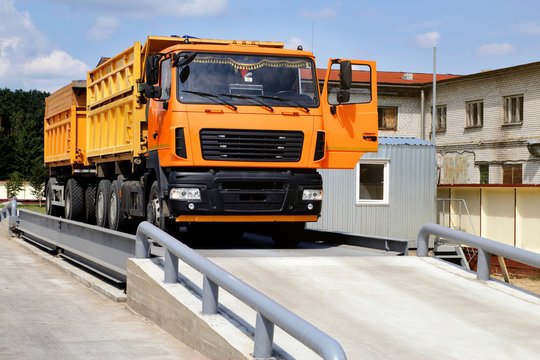Trucks carrying large cargo need to comply with the local weight regulations to ensure safety for every other driver on the highway. These trucks need to meet the standard weight limits provided by the local authorities so that they may be eligible to drive along the way. Although safety seems to be the primary concern, other reasons require truck drivers to weigh their trucks and cargo while driving on a highway.
In this brief guide, we are going to walk you through the reasons why trucks need to weigh in on the highway.
What are Truck Weigh Stations on the Highway?
A truck weight station is a checkpoint that you can find along most highways that are used to inspect the weight of a vehicle. The weight calculation ensures the safety of the roads, the bridges on the highway, as well as the drivers who are driving on the same road.
These weigh stations include a truck weighing scale such as a truck weigh bridge that the vehicle drives on which helps in calculating the overall weight. Every country and state have a specific weight limit for the vehicles driving on the highway. Weigh stations ensure that the vehicles driving on the road meet the safety guidelines.
Measurements Used for Calculating the Truck Weight
Trucks that are overweight can cause a lot of damage to the roads while endangering the safety of other drivers. This is what makes it necessary to find the weight of trucks when they are driving on a highway.
Following are the two measurements used to calculate the weight of a truck:
Axle Weight
This refers to the total weight carried by each of the tandem axles on a truck. This measurement can be calculated by dividing the total weight of the load and trailer by the total number of tandem axles and adding the weight of the tractor or pickup to the result.
Gross Weight
This measurement is calculated by combining the weight of the load, trailer, pickup, or any other accessories carried by the tandem axels.

Why Do Trucks Have to Weigh in on the Highway & Stations?
Truck drivers have to stop at the weigh stations for two common reasons and these include taxation and safety compliance. Let’s go over what these two reasons entail:
Taxation Purposes
Most states tax goods and products based on their volume, especially for large cargo. This means that the weight of a truck when carrying cargo is essential for finding the tax that the drivers owe to the government.
The tax collected from truck drivers is used to cover the expenses of maintaining the highways as they get subjected to the wear and tear of transportation. These checkpoints might also be used to check whether the drivers have the right documents to drive the truck on the highway.
Ensuring Safety
Although taxation is important to ensure that the highways are well-maintained, safety is the primary concern for weighing trucks on the highway. Truck weight stations make sure that the vehicle is just the right weight to navigate the highway.
If the weight of the truck exceeds the standard weight limit, it increases the risk of damage because of overloading. Highways have a specific capability of handling maximum weight. If overweight trucks pass along the highway, these roads are prone to receiving more damage in less time. This is not ideal as it can lead to potential road accidents.
Consequences of Not Weighing Your Truck on Weigh Stations
If a driver doesn’t pass their truck through a weigh station on a highway, they become liable for citations and fines as specified by the state. Most states calculate these fines based on the total amount of weight that is being carried by the truck. And if the truck is too overweight, the state has the right to hold the truck at the weigh station before the problem is resolved.
Where are Weigh Stations Located on Most Highways?
For new truck drivers who don’t have a lot of experience with weigh stations, these checkpoints are generally located just off the highway. You can find these weigh stations next to a scale house along with the offices of inspectors responsible for clearing your vehicle to drive on the highway.
Along with the fixed weigh stations, some states use portable scales that can be set up anywhere, as per the weighing needs of a truck. These scales are used to set temporary checkpoints for trucks that try to avoid the weigh stations on the highway.
Conclusion
When it comes to maintaining safety and minimizing the damage to the highway, trucks have to be extra careful because they carry the most weight. These vehicles need to comply with the local regulations to ensure that they don’t become the cause of road accidents. So, make sure to pass your truck through a weigh station before getting on a highway to avoid fines and penalties. Check out Accurate Meezan for reliable commercial weighing solutions in Oman.